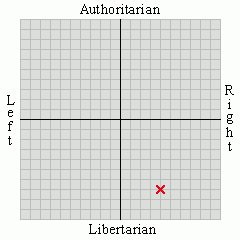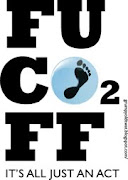And then someone comes along and sticks a broom handle in the spokes.
Bushfire victims without insurance are in line to receive bigger payouts than those households that have paid insurance.
This comes as the insurance bill for the Victorian bushfires passes $1 billion, putting more pressure on the State Government to detail the extent of funding for the uninsured and underinsured.
On a visit to the temporary accommodation centre at Flowerdale, Mr Brumby said the Government was committed to helping those who wanted to rebuild.
"Clearly people who haven't got any support, who have lost everything and have been uninsured, maybe they get the bigger hand along," he said.
"These are all of the things that are being looked at and examined."
A final decision on funding levels and eligibility is not expected from the Government and the Victorian Bushfire Appeal Fund until next week. The appeal has raised $210 million so far.
Victorian Bushfire Appeal Fund advisory panel chairman John Landy said everyone deserved support, regardless of whether they were insured or not when the Black Saturday bushfires struck on February 7.
"We think that people gave money in a terrible situation of great devastation, people losing members of their family, their homes, everything, and we think the humanitarian imperative overrules everything else," he said.
Almost 30 per cent of more than 2000 properties destroyed in the bushfire were either uninsured or underinsured.
This has left almost 600 families without insurance unsure if they can rebuild.
Predictably some people, such as those writing for the Melbourne Herald Sun, are getting a bit bent out of shape about this and grumbling that they wouldn't have donated to the appeal if they'd known it was going to be given to idiots who were under or uninsured. The insurance industry is understandably also a bit upset since it sees the possibility that people will simply stop buying insurance in the expectation that they'll be bailed out if things go tits up. Now I can understand all of that but have a think about these points:
If someone loses their house to a bushfire but they're fully insured what the fuck do they need the charity money for? Possibly they'll have immediate needs between escaping and getting the insurance payout such as food, clothing, a hotel etc. (apparently pet food was a big need early on), and perhaps medical bills for the injured, and sadly funeral costs for the dead. But when the insurance money starts coming in they don't need charity anymore. Support of various kinds, yes, but the folding type is now taken care of. A couple of minute's rational thought would tell anyone that uninsured fire victims are likely to get a significant proportion.
Second point, if I give you money unconditionally so you can help other people with it it's fucking unconditional. I can't go back afterwards and say that I expect the money only to be given to those who don't need it (because I haven't bothered to give it a couple of minute's rational thought). Once I give the money away it's no longer mine which I can choose how it's spent, but the charity/fund/whatever. This is how charity works. It's a donation given freely and without condition, or at least it should be, and if you don't like how the money is likely to be used you don't fucking give it away. Simple as.
Thirdly, I can understand the concerns of the insurance industry in that there's an apparent reward for not taking the obvious precaution of buying insurance. However, I think that "reward" is being overstated. Effectively what we have here are two groups of people - those who played safe and used some of their disposable income on insurance and those who retained that disposable income for other things and gambled that the insurance would not be needed knowing that they'd be reliant on nothing but charity if they were wrong. Insurers are obviously worrying that be bailed out by the bushfire fund is a disincentive to buy insurance, but the unpredictable situation those uninsured homeowners are now in is also a disincentive. It's clear that $200 million isn't going to go around without being spread pretty thin, so relying on charity is making their lives fairly uncertain at the moment. Frankly the insurance industry ought to be concentrating on getting their customers' claims sorted out and those homes rebuilt toot fucking sweet so they can turn around and point out how much better off are those who bought insurance than those hoping that a share in charitable donations will give them at least a roof over their heads. Make no mistake, I'm not on side with those idiots who gambled and have more respect for those who took the obvious and sensible precaution, but I'm not heartless either. I've put my hand in my pocket for a few bob, but that's it. If it doesn't go far enough to replace what the uninsured have lost then they'll have to downsize or otherwise alter their lives for the worse to reflect their changed circumstances. This is not an advert for how great it is being uninsured as far as I can see.
Frankly they need to worry that the government doesn't simply make up the difference, which I worry is a likely scenario and, unlike charity, is something that we will all have to pay for whether we agree or not, and will send the very message that worries the insurance companies far more louder and more clearly than a couple of hundred mill scraped up from companies and local sausage sizzles. That really is something that should be avoided, though I won't hold my breath. However, this is the age of government
The other nightmare scenario for me is this suggestion from the second MHS article linked above:
Simpler, but no less contentious, is a push for mandatory insurance in bush fire zones. There is now strong argument for compulsory house insurance like the third party provisions for motor vehicles.WTF? It's not even vaguely the same fucking thing. Third party motor insurance is there in case someone else gets hurt and doesn't cover loss of one's own property. You need fully comp for that, which is what home insurance (correctly valued obviously) would do whether voluntary or mandatory. In fact compulsory third party motor insurance doesn't even cover third party property loss or damage - it's just personal injury insurance. How does an uninsured house cause personal injuries to third parties that may need covering? Even if we included loss/damage what can happen to an uninsured house that can possibly make a victim of anyone other than the person guilty of not insuring it? So aside from it being insurance the two things have nothing in common. This would be inventing yet another victimless crime, or at least a crime in which the victim is the same as the guilty party, which is much the same thing in my book. But apart from that the Herlad Sun has a couple of reservations about the idea:
But that brings more questions.Why indeed? It might well be the thin end of a wedge. More to the point, if customers are being driven into the arms of insurance companies by force of law does anyone think the insurance companies are going to work particularly hard to offer the best deal? There'd be a certain amount of competition between them for business but they wouldn't have to try as hard as they would if it was entirely up to homeowners. Worse still is the possibility that it would, like the third party injury insurance you buy with the car rego, be state run and not even slightly competitive. Somehow I think the insurance companies would like the idea of compulsory insurance, but probably not like that. No, the best solution is for the government, state and federal both, to stay out of it. Kevin Rudd and John Brumby can appear on TV looking all grave and compassionate but other than that it's best if they fuck off out of the way. Look, well done for using some of our tax money on the fire crews and the aircranes, fellas, and genuinely thanks very much for that. But let people make their own decisions.
Why stop at fire zones? What about flood-prone areas? What about where there is a high risk of burglary?
The Herald Sun comes to more or less the same conclusion:
Perhaps, it would be simpler to honour some of the emotional promises this time, but make it clear that in future anybody uninsured is on their own.Absofuckinglutely..... providing that honouring the emotional promises this time does not include a huge tax funded splurge on the uninsured fuckwits. As I said before, I'm not heartless and donated to the appeal in the expectation that the money would not be going to someone who had sensibly bought adequate insurance but more likely towards some twat who hadn't. I'm fine with that, really. But I can't stress this strongly enough - if you want insurance to look like the best option to anyone with a brain, and I for one do, then relying on disaster handouts has got to be uncertain, unpleasant and probably inadequate to make up for all an uninsured person's losses.
That may seem harsh, but even in a society as compassionate as ours, individuals must ultimately accept responsibility to care for themselves.


















